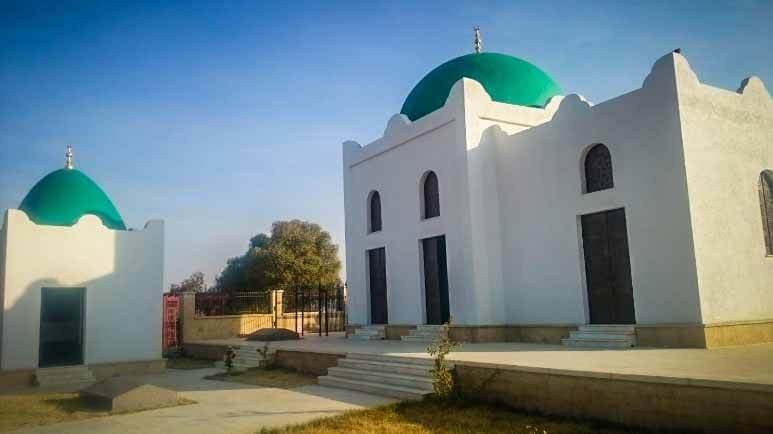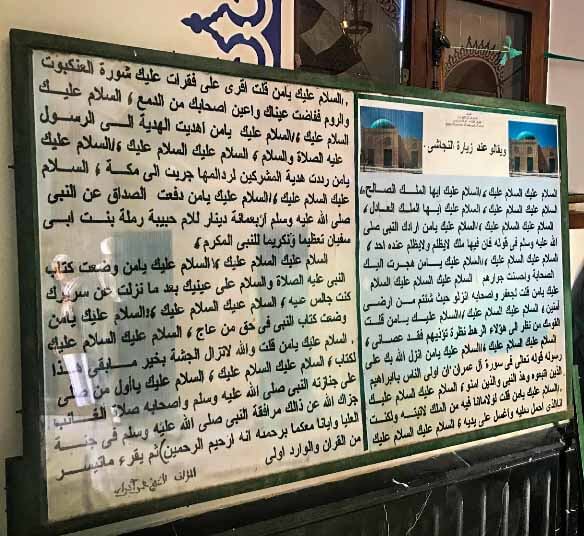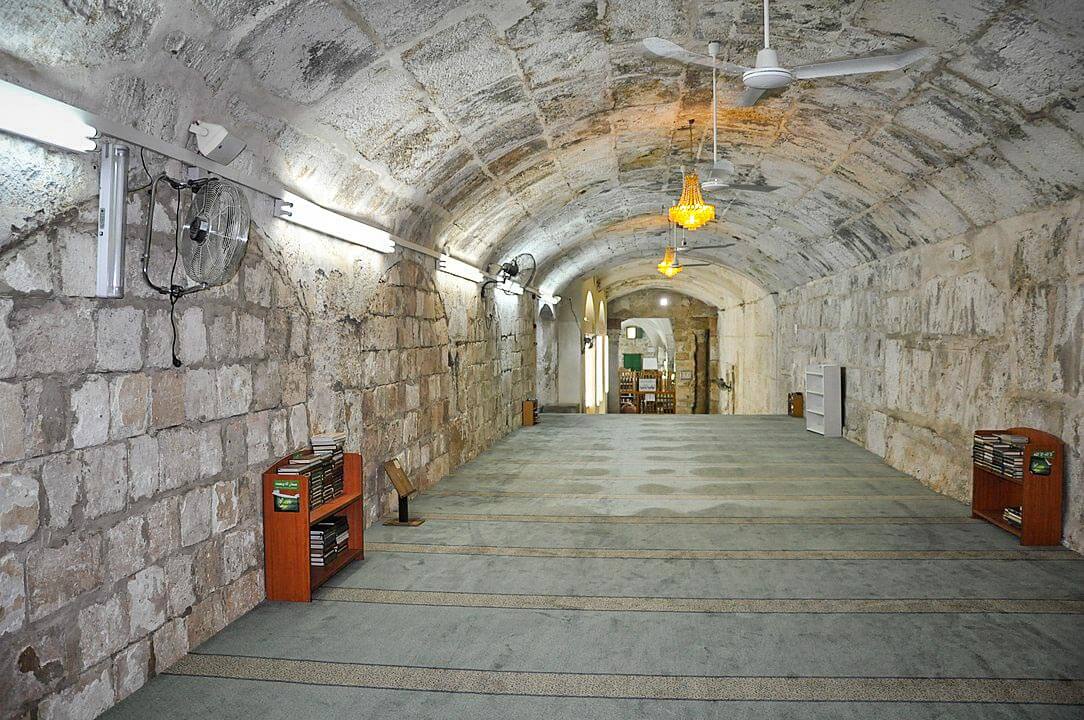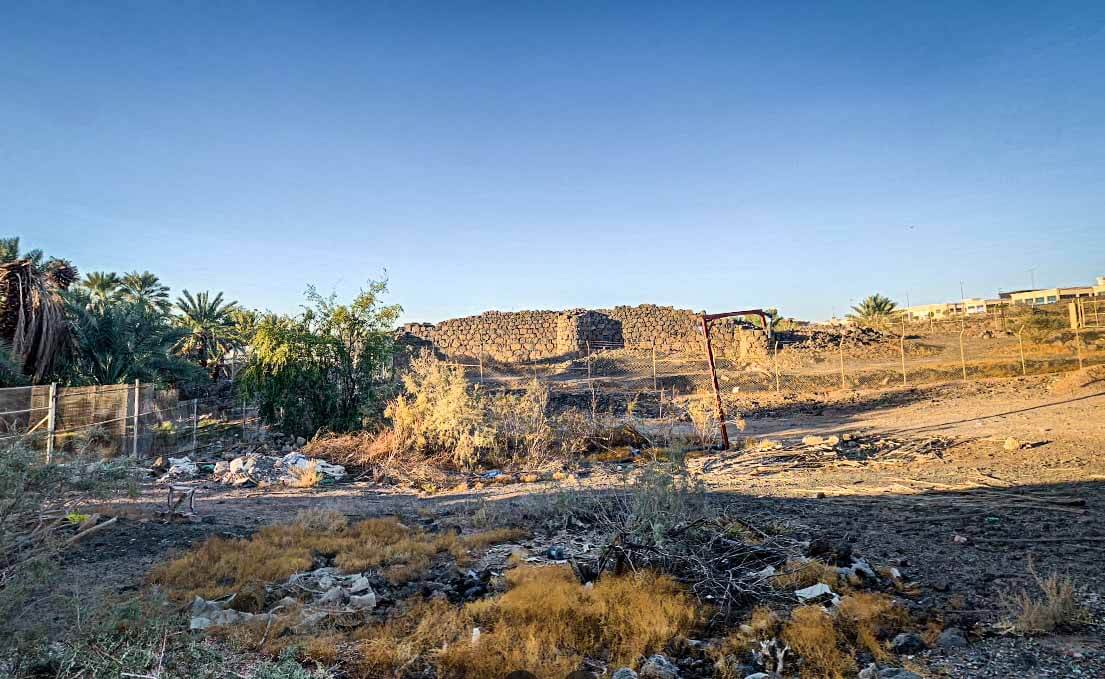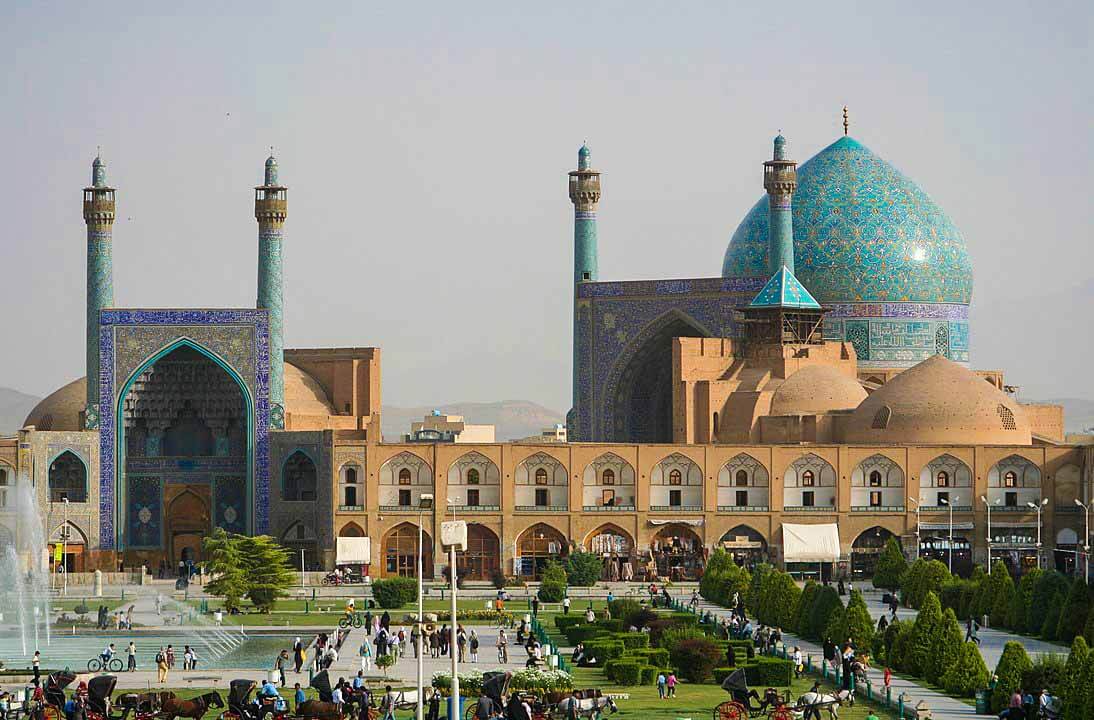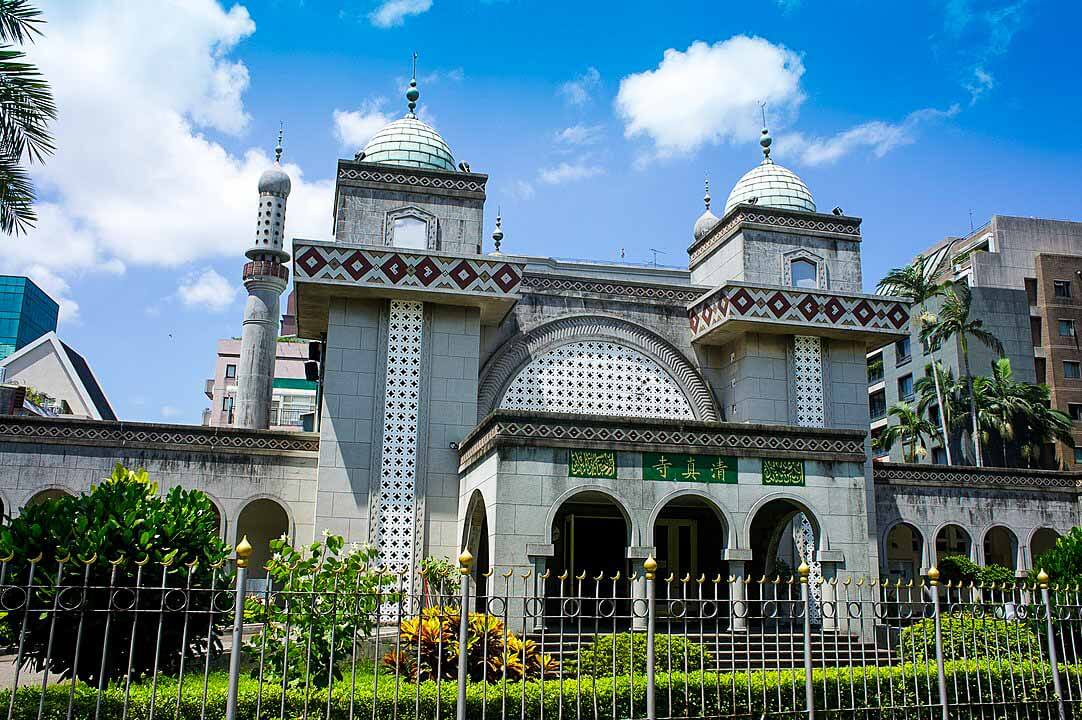Negash, Ethiopia
Coordinates: 13.874418, 39.598998
Hz. Ashama ibn Abjar رضي الله عنه was Emperor or al-Najashi of Aksum at the time of Hz. Prophet Muhammad ﷺ, and gave refuge to several Muslims in the Kingdom of Aksum.
Islamic traditions
Due to persecution from the contemporary Arab leadership in Mecca, a number of Muslims emigrated to Axum. In response, the Arab leaders sent Hz. Amr ibn al-Aas رضي الله عنه to bring them back. He was a friend of Ashama, and at the same time also had good relations with Abu Sufyan, the then leader of Quraish.
The king did not act in a hurry but showed patience and demanded the holy scripture of Muslims to be read. At this, Hz. Ja`far ibn Abi Talib رضي الله عنه recited some verses from the Quran from the chapter of Maryam (Mary).
According to Ibn Hisham, Hz. al-Najashi رضي الله عنه and the Ethiopian Orthodox priests in his court were greatly affected by the touching verses that they began to shed tears.
And so, The king firmly denied Hz. Amr’s رضي الله عنه request to be handed the Muslim refugees. Hz. Amr رضي الله عنه arrived the next day at the court of The king, and demanded in his presence that the Muslims make known their creed about Hz. Isa عليه اسلام .
This was a difficult situation because Hz. Isa عليه اسلام is not considered as the son of God in the Qur’an, which was expected to greatly enrage a devout Christian like Emperor The king.
To this, he explained that Hz. Isa عليه اسلام is considered in Islam to be a messenger of God, the word of Allah, and the miraculously born son of the Bibi Maryam رضي الله عنها.
In reply to this statement, The king made a line on the sand with his mace and said, “By Allah, Hz. Isa عليه اسلام is not more than what you have described him.
By Allah, I will never give you up to anyone.” He then declared that Muslims could live in Axum for as long as they wished for. According to Muslim tradition, it is during this situation that The king converted to Islam.
The Sahabi Hz. Abu Huraira رضي الله عنه narrates that Prophet Muhammad ﷺ announced the death of The king on the same day that he died, and even before any news became known about it for anyone in the city. Hz. Prophet Muhammad ﷺ also performed the salat-ul Janaza for him in Medinah Sharif.
His Death and Funeral
Islamic scholar Al-Nawawi wrote in his Commentary on Sahih Muslim that Imam Shafi’i رضي الله عنه and those who agree to his doctrine in fiqh see in this hadith a proof for praying in absence over a dead Muslim.
There is in the hadith an evident miracle of the Prophet’s ﷺ due to his proclamation of the Ashama’s رضي الله عنه death on the same day that the latter died in Axum.
There is also in the hadith the desirability of proclaiming the death of someone, but not in the pre-Islamic fashion which means to glorify and so forth.
Hz. Prophet Muhammad ﷺ had asked the Negus to send Hz. Ja’far رضي الله عنه and his companions, the emigrants to Axum, back home.
They came back to see Hz. Prophet Muhammad ﷺ in Khaibar. The king later died in Rajab 9, A.H. shortly after the Ghazwa of Tabuk.
Hz. Prophet Muhammad ﷺ announced his death and observed prayer in absentia for him.




